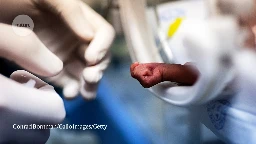Human trials of artificial wombs could start soon. Here’s what you need to know.
Human trials of artificial wombs could start soon. Here’s what you need to know.

www.nature.com
Human trials of artificial wombs could start soon. Here’s what you need to know


